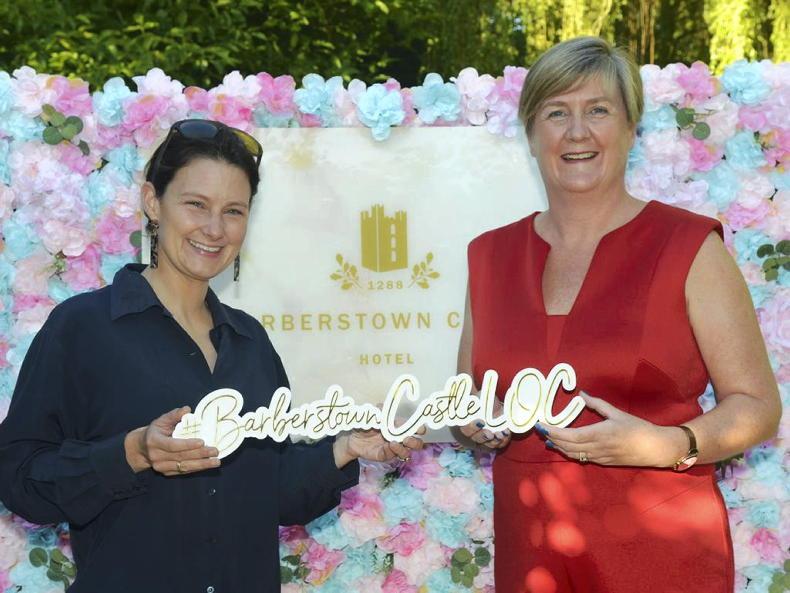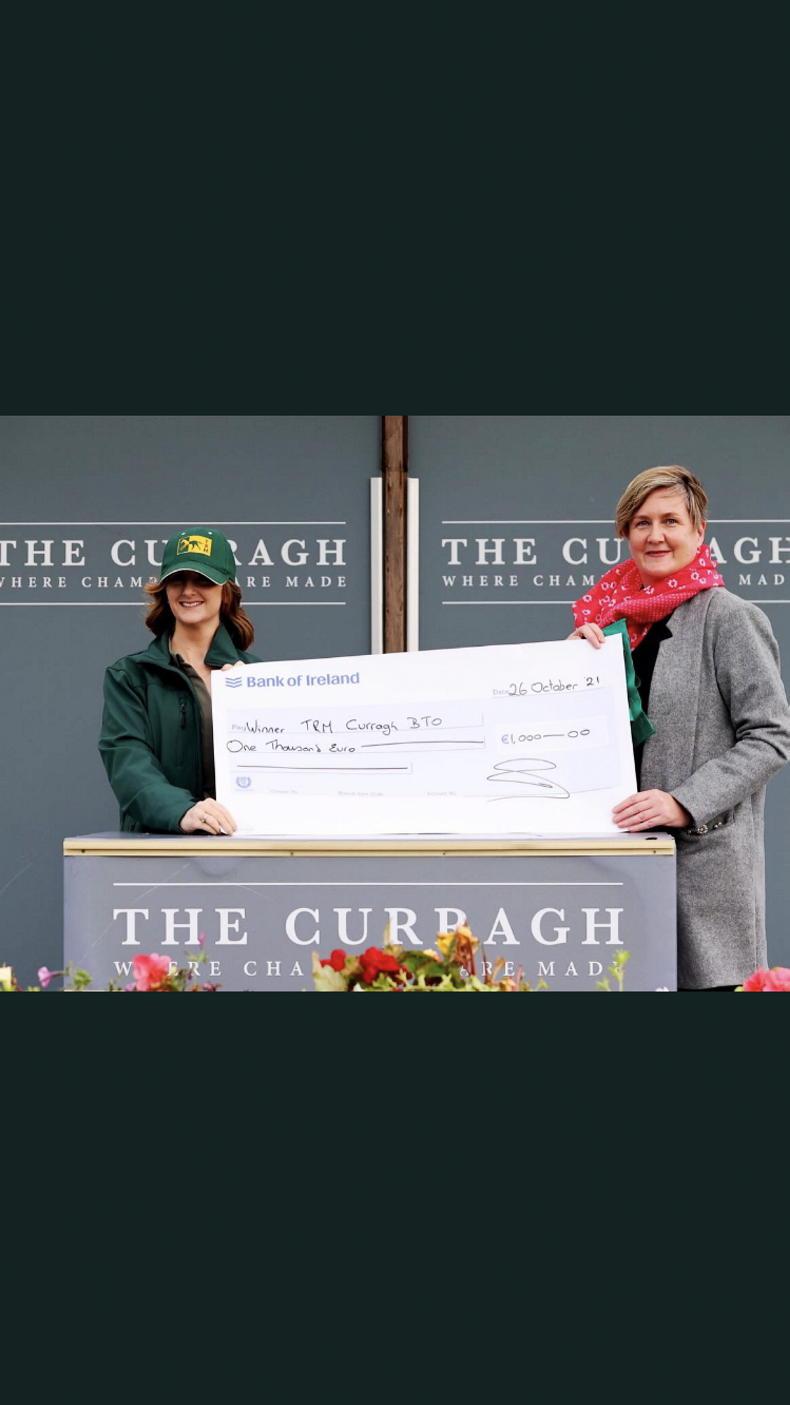THE end of the Cheltenham Festival traditionally heralds the start of the flat season here in Ireland.
With the curtain coming down on another hugely exciting festival on Friday, those of us here at the Curragh Racecourse are busy preparing for our opening meeting of 2023 on Saturday week.
A card that features the Paddy Power Irish Lincoln and Group 3 Park Express Stakes gets underway at 1.40.
As Racing & Training Grounds Executive at the Curragh, I am continuing a long family association with the sport.
My grand aunt bred the legendary Glencaraig Lady, while my grand uncle owned Millie Whiteway, the first ever winner of the Moyglare Stud Stakes. Silver Patch, trained for my grandfather by Frank Oakes, was the first horse that I can remember going to see and he definitely got the heart racing as he loved to race from behind. He won a lot of races in his career and always seemed to enjoy Punchestown.
Fond memories
I was only seven when he was racing but have fond memories of those days. My mother was an accomplished rider who competed at the RDS, while her brother was chef d’equipe of the Irish team at one time.
Having been around ponies from an early age, both my brother Shane and I learned how to ride when we were quite young. In later years, we got rid of the ponies and developed a successful thoroughbred breeding operation. More recently, following the passing of both parents, my brother and I have continued to run that business.
With broodmares and foals to attend to, I spent my teenage years working at home. When I wasn’t on the farm, I was helping my father in his butcher shop in inner city Dublin. It was a great place to work and I really enjoyed the craic and the madness, especially in the build-up to Christmas.
Who knows, I could have ended up making a career out of it but Dad always said that a left-handed butcher was a danger to everyone!
After I left school, I did an evening course and part-time degree course, while continuing to help out at home. I then worked in a local garage doing accounts, before moving on to the Queally Group in the food industry, where I was employed in accounts and then, as a PA.
Career break
After that, I decided to take a career break and spent two years travelling in New Zealand and Australia. On my return to Ireland, I took up temporary positions until I got a role as PA to Paul Hensey, who was the manager at the Curragh Racecourse.
I worked closely with the stable yard manager when it came to looking after overseas runners; finding accommodation for grooms, organising transport, supplying shavings for horses, and so on.
I left the Curragh after three or four years and moved over to the UK, where I took up a role outside of racing. I then enjoyed a second stint doing maternity cover as a PA for Paul Hensey, before returning to my previous employer once that cover ended.
Curragh
Seven years ago, I took up a full-time position at the Curragh; working with both owners and trainers and also within the hospitality and sales sector.
Nowadays, we have a house on site to accommodate grooms from overseas but on bigger weekends we may still need to source B&Bs if there is an overflow. As a rule, we try to make sure that at least every horse has a stable representative on site for the duration of their stay.
As Racing and Training Grounds Executive, I also look after the transport, Brexit paperwork and VAT relating to overseas runners. The groom’s canteen, which is very kindly sponsored by Moyglare Stud, also comes under my remit.
I see it as a priority that the stable staff are well looked after and catered for when they are working at the Curragh. It is a long day for many of them, travelling long distances and it’s important that they are well fed while on site.
At the Curragh, we cater for all allergies, as well as providing both vegan and halal meals. I am also responsible for the admin aspects of sponsorship, in that I have to ensure that grooms wear the correct hats and jackets and have the rugs with the sponsors logo emblazed on them, and correct information for invoicing.
I send out an email to trainers a couple of days before entries close, just to give them a reminder. In most cases, they will of course be well aware of such deadlines but sometimes a trainer may have been considering an entry or it may just have slipped their mind, so I like to provide that reminder. I like to think that people don’t realise what has to be done as it’s all ready and waiting for them when they get here.
As soon as the final race was run last season, the team at the Curragh set to work on building for 2023. Contracts with caterers, suppliers and insurers need to be renewed and we consult with doctors, vets and Order of Malta staff to get their views on the previous nine months.
In that regard, I liaise closely with Dr Jennifer Pugh, in order to ensure that everything is operating as it should on the medical front.
Generally, if we discover that any aspect of operations at the track isn’t working during racing, we will do our best to address it immediately. However, in the event that it is a bigger issue, it may necessary to wait until the end of the season.
Updating
At the Curragh, we are constantly updating and making improvements in order to make the race day experience an enjoyable one for everyone. As far as I am aware, we are one of the few racecourses in Ireland to provide towels for all jockeys on race day.
We also run free shuttle buses to the track from both Newbridge and Kildare town centre on race days. People like to be able to relax during the afternoon, have a few drinks and not worry about getting home after.
I think providing transport eases that concern. At our opening meeting of the season on March 25th, any owner with an active AIR card will be admitted free of charge, whether they have a runner or not, while under-18s will have free entry throughout the entire year. With our gallops and training grounds open 365 days, I process charges, look after insurance and make sure everything runs as it should.
With my brother and I continuing the family breeding operation, we graduated into racehorse ownership quite by default. Whether it was a case of a horse not meeting its reserve or us becoming too attached to one, we ended up running a few on the track.
My colours, which date back to our grandfather, are so old that computers can’t print them. At one stage, when we wanted to have a runner in the UK, we had to pull up a photo from the 1980s to prove to the BHA that they existed!
Over the years, we have enjoyed success in the ownership ranks, while horses that were bred at home have gone on to win races in places such as, Ireland, Britain Spain, France, Sweden, Italy, Germany and the USA.
Ciara Doyle was in conversation with John O’Riordan


 This is a subscriber-only article
This is a subscriber-only article
 It looks like you're browsing in private mode
It looks like you're browsing in private mode






SHARING OPTIONS: